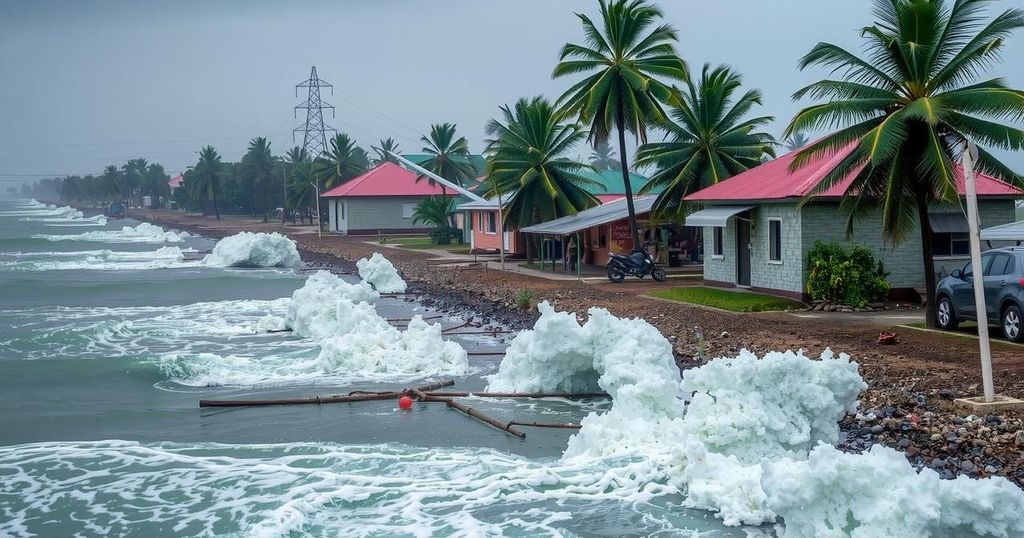Cyclone Chido’s Impact: Death Toll Rises to 75 in Mozambique

Cyclone Chido’s death toll in Mozambique has risen to 75 as rescue operations continue in devastated areas. The cyclone, which struck Cabo Delgado province, exacerbated existing turmoil from a yearslong insurgency. Rescuers face challenges navigating the destruction as the storm has significantly impacted infrastructure and living conditions. Past severe weather events indicate a troubling trend for Mozambique amidst ongoing climate challenges.
The death toll from Cyclone Chido in Mozambique has tragically increased to 75, nearly doubling earlier estimates, as authorities and rescue teams manage to access isolated regions affected by the storm. Cyclone Chido made landfall in Cabo Delgado province, a location already ravaged by an ongoing insurgency that has displaced hundreds of thousands. Reports indicate that at least 69 fatalities occurred in the province, with over 740 individuals injured due to the cyclone’s wrath, as rescuers struggled to navigate damaged roads to reach victims. In Mecufi district, significant devastation has been reported, with many structures reduced to rubble.
Visual accounts from the disaster area show that the cyclone’s powerful winds, reaching speeds of 115 miles per hour, resulted in the destruction of homes constructed from mud and wood. The maternity clinic in Mecufi suffered extensive damage, including the loss of its corrugated-iron roof, which left medical facilities in disarray. The United Nations Office for the Coordination of Humanitarian Affairs corroborates the widespread destruction, stating that “what you see is utter destruction.” Among the displaced individuals, many were already living in precarious conditions due to the insurgency and faced further hardships from this climate crisis.
The impact of Cyclone Chido extends beyond immediate physical destruction, representing a potential precursor to an intense and disruptive rainy season in the region. Historical patterns indicate that such seasons often bring severe storms and flooding, areas which Mozambique is increasingly unable to withstand due to climate change. Furthermore, the nation has witnessed repeated geological turmoil; past storms like Tropical Cyclone Freddy and Cyclone Gombe have previously claimed lives and displaced large numbers. It is vital to recognize Mozambique’s ongoing struggles with both natural disasters and civil unrest, further complicating recovery efforts and immediate assistance.
Cyclone Chido has exacerbated an already precarious situation in Mozambique, particularly in Cabo Delgado province, which is marred by a prolonged insurgency that has led to significant displacement among the local populace. The region is particularly vulnerable due to its geographic location along the southern Indian Ocean, where it frequently experiences severe weather events. Mozambique, recognized as one of the world’s poorest countries, has been significantly impacted by climate change, which has intensified the frequency and severity of cyclones, floods, and other natural disasters. The convergence of conflict and climate impacts presents significant challenges affecting humanitarian efforts and community resilience.
The recent intensification of Cyclone Chido has led to a sharp increase in the death toll in Mozambique, highlighting the dual crises of natural disaster and ongoing conflict in the region. As authorities reach previously inaccessible areas, the full extent of the cyclone’s destruction is becoming evident. Moving forward, Mozambique faces the urgent need for humanitarian assistance to help those affected while addressing the broader implications of climate change and civil unrest that complicate recovery efforts. The tragic circumstances resulting from Cyclone Chido are reflective of the pressing reality many face in an increasingly volatile environment.
Original Source: www.nytimes.com






